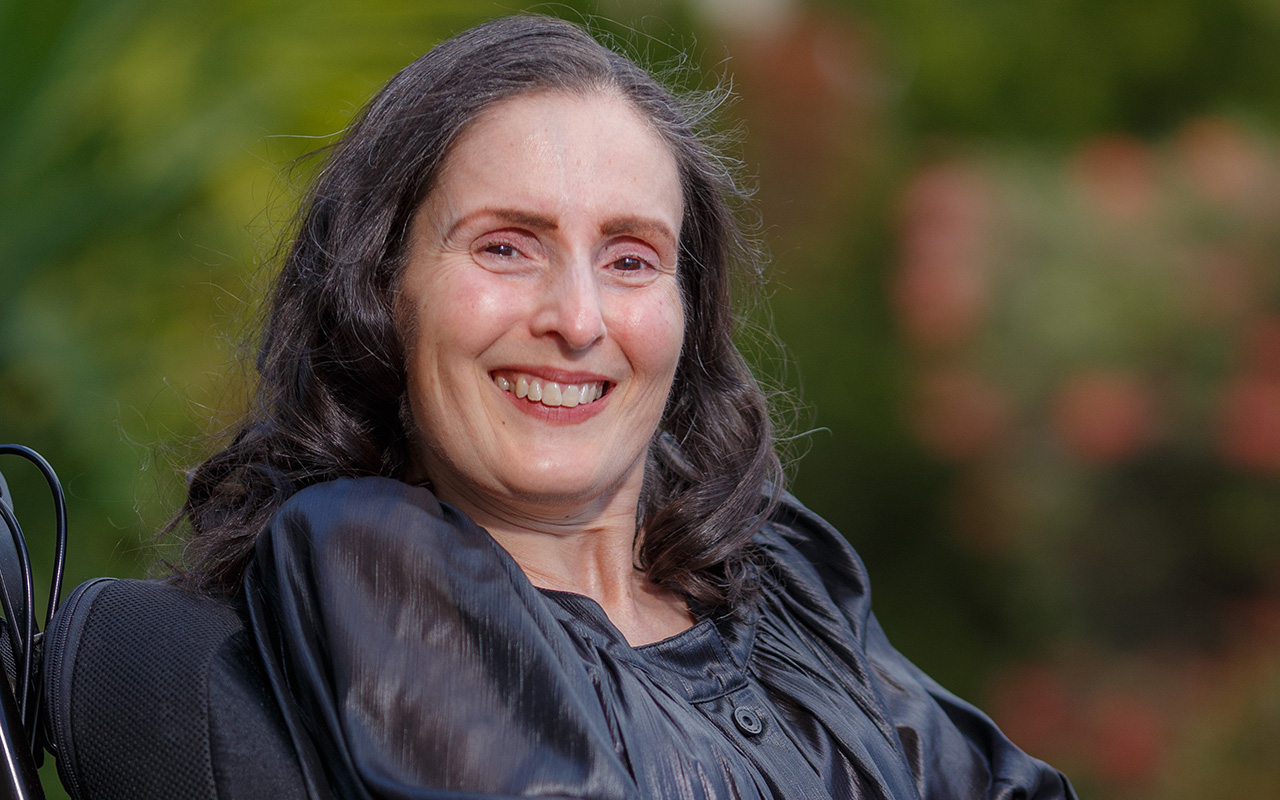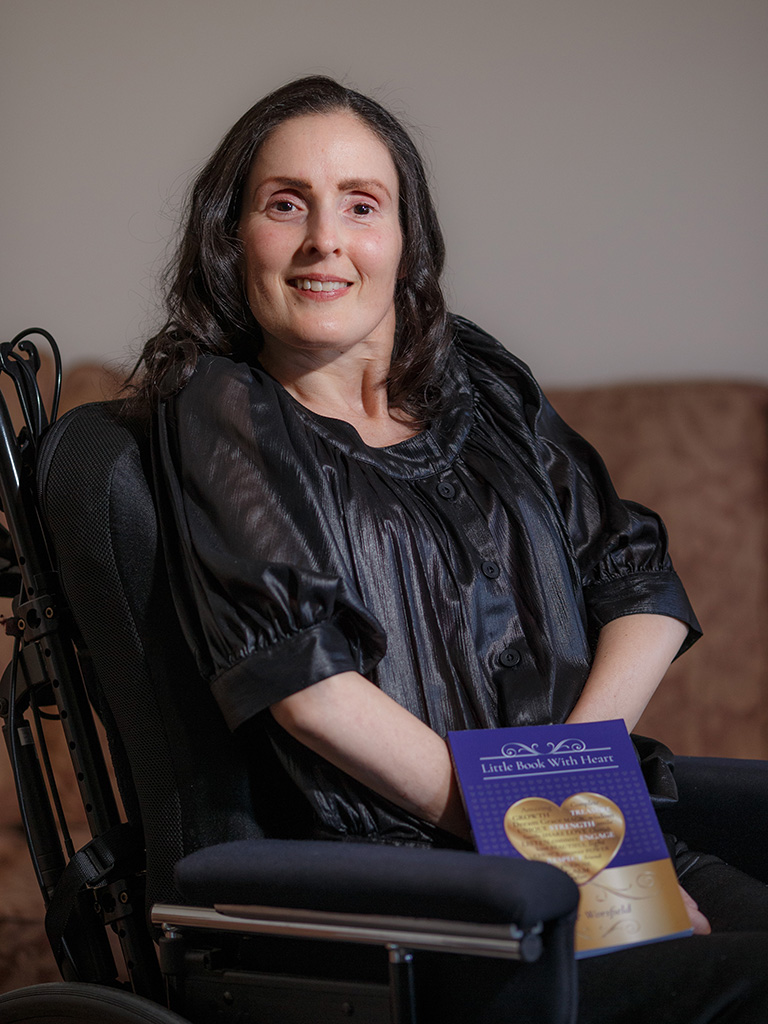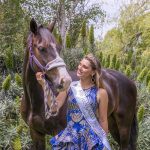
Langwarrin writer Kerrie Worsfield is a model of resilience and positive thinking. Though Multiple Sclerosis has taken away the use of her arms and legs and she needs 24-hour care, her spirit is indomitable. Gaining control over her mind has been the key to getting through the many challenges of losing control of her body.
“MS is part of my life, not all of it. It doesn’t define me. I can do anything using adaptive technology. It doesn’t stop me from doing what I want. In fact, it’s actually given me better problem-solving skills. I has taught me to think outside of the box,” she says.
When things became really hard and she was battling depression, art and writing were her salvation. Kerrie started painting with her teeth and, later, with the use of an adapted chin cup. The images and colours brought to mind words and she started to write poetry to complement the artwork.
With the help of her carers who wrote down the words she dictated, her first book of poetry and reflective thinking, Little Book With Heart, was published by Morpheus Publishing in September. The joy and empowerment she felt was palpable. At her book launch, she was positively glowing with pride.
It took years to achieve this sunny disposition. When she was diagnosed at 22, it came as an incredible shock. Kerrie didn’t know anything about MS. She’d only ever heard of it in reference to the MS Readathon. So she set out to learn everything she could. She thought knowledge would empower her but it was overwhelming and led to depression.
At the time of diagnosis, Kerrie was happily engaged to be married. She had completed her first year of a degree in Computing with a minor in accounting at Monash University. She deferred those studies to take up full-time work at the ANZ bank. It wasn’t until her vision became blurry (which glasses did not help) that she thought something was awry.
It wasn’t her first inkling though. She consulted with a GP when she was 20 to inquire about an unusual sensation that felt like a tight band around her stomach. Her concern was brushed off. She later learned that this ‘MS hug’ was a classic early onset sign. If that had been picked up right away, treatment to slow the progress of the disease could have been started then.
When the blurry vision symptom arose, she found a new GP who referred her to a neurologist. With brain MRIs and a specialist on board, Kerrie started to get some answers, but it took a second neurologist to really get the ball rolling with treatments.
When the full weight of the diagnosis hit her, combined with treatment she felt was ineffectual, Kerrie fell into a deep depression. Then her husband left. It felt like she’d hit rock bottom. She really had to lean in to her resilience to find ways to move forward and adapt to all of the changes in her body. It took years.
Things really turned around in 2016 when one of Kerrie’s support workers found her Year 12 English folder filled with poetry. She thought Kerrie’s writing was good and encouraged her to pursue it. This was a game changer. Kerrie realised she wanted to be a writer. With support, she got going. At first, Kerrie made poetry calendars for her family.
“Poetry resonates with me because I have always loved song lyrics,” she says.
“Poetry resonates with me because I have always loved song lyrics,” she says. She loves the cadence, rhythm and rhyme of poetry. Sheepishly, she admits she prefers writing short form pieces because she has a short attention span.
In 2023, Justine Martin at Morpheus Publishing gave a webinar on MS for World MS Day. Kerrie made a connection with her. Then Justine started an MS writing group and invited Kerrie to contribute a chapter to Whispers of Resilience, an anthology of stories about living with MS. Kerrie loved getting her work published. This set the wheels in motion for her own book.

This year Kerrie joined the Frankston Writers’ Salon. It’s a welcoming, inclusive writing group for writers at all levels. They meet monthly at Frankston Library to write short form poetry and micro-fiction which they share with the group at the end of the session. “I have found my people through writing,” she says.
“When I was first struggling with my diagnosis, my sister asked me to tell her five things I was grateful for. I did. Now gratitude is a regular practice. It helps when I get depressed,” she says. A great support team, positive mindset and a passion for writing has changed Kerrie’s perspective.
morpheuspublishing.com.au/authors/kerrie-worsfield





